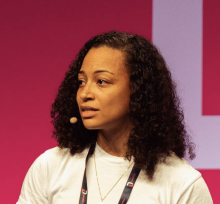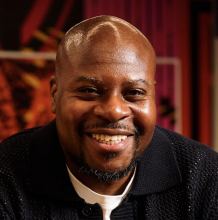Summary
Disclaimer: This summary has been generated by AI. It is experimental, and feedback is welcomed. Please reach out to info@qconlondon.com with any comments or concerns.
The presentation titled Platform Engineering as a Practice of Sociotechnical Excellence by Lesley Cordero explores the integration of social and technical elements within organizations, focusing on how platform engineering can drive socio-technical change. Here is a structured summary:
Introduction
- Presenter: Lesley Cordero, Staff Software Engineer at The New York Times, focusing on reliability platforms.
- Objective: To discuss platform engineering as a methodology for organizational and sociotechnical change.
- Foundational Concepts: Explanation of socio-technical systems and their relevance to technology organizations.
Key Concepts
- Socio-Technical Systems: Emphasizes the intertwined nature of social and technical aspects in organizations.
- Joint Optimization: Integration of social and technical systems must be improved together.
- Leadership and Tension: Leadership involves managing tensions between technical and social components, requiring intentional balance and adaptability.
Platform Engineering Fundamentals
- Positioned at the intersection of infrastructure, developer experience, and product delivery.
- Promotes creating internal platforms that enhance automation, reliability, and feedback-driven iteration.
- Encourages reducing cognitive load and enabling efficient and safe deployments through platform decisions.
Principles and Practices
- Importance of design-driven architecture and using modularity and abstraction.
- Advises on addressing user-developer experience tensions by prioritizing end-user needs without compromising system reliability.
- Stresses the role of communal learning for sustainable advantage and advocating for a community-informed leadership style.
Challenges and Solutions
- Addresses challenges in maintaining balance between standardization versus flexibility and simplicity versus complexity.
- Recommends using shared community knowledge to prevent silos and enhance quality.
- Promotes using external solutions for better efficiency and reduced maintenance burdens.
Conclusion
- Platform engineering is highlighted as a socio-technical strategy for overcoming organizational complexities and enhancing scalability and sustainability.
- Insights offered into evolving architectural strategies to address growing technical and organizational needs.
The presentation provides a comprehensive guide for leveraging platform engineering to integrate socio-technical systems effectively, emphasizing leadership, strategic design, and the balance of tensions in complex organizations.
This is the end of the AI-generated content.
Abstract
In this talk, we’ll explore DevOps as a foundational model for technical leadership that directly supports organizational sustainability. We'll focus on how platform engineering teams are uniquely positioned to lead by example through the intentional application of DevOps principles and platform practices.
Platform Engineering sits at the intersection of infrastructure, developer experience, and product delivery. By designing internal platforms that prioritize automation, reliability, and developer feedback, platform engineers can shape how technical excellence scales across an organization. This talk will dig into how to embed DevOps principles -- like strong ownership models, feedback-driven iteration, and psychologically safe deployment processes -- into platform tooling and workflows. We’ll cover strategies for reducing cognitive load, enabling fast and safe deploys, and driving cross-team alignment through platform decisions.
Key Takeaways:
- How platform teams can operationalize DevOps by codifying reliability, security, and velocity into shared infrastructure and tooling
- How to use platform abstractions to align developer experience with business priorities
- Why platform engineering is essential to scaling both systems and culture, and how that supports long-term organizational resilience
- How to design and maintain technical boundaries that encourage cross-functional collaboration and reduce organizational silos.
Speaker

Lesley Cordero
Staff Software Engineer, Tech Lead @nytimes, Focused on Observability, Shared Platforms, and Building Excellent Teams, Previously Engineer for EdTech
Lesley Cordero is currently a Staff Software Engineer, Tech Lead at The New York Times. She has spent the majority of her career on edtech teams as an engineer, including Google for Education and other edtech startups.
In her current role, she is focused on observability, shared platforms, and building excellent teams by setting reliability vision & strategy across The Times, improving our observability footprint, and cultivating culture that builds with the most vulnerable employees in mind first. She shows care for others by holding them accountable to the best versions of themselves – and by buying them the occasional bubble tea.




